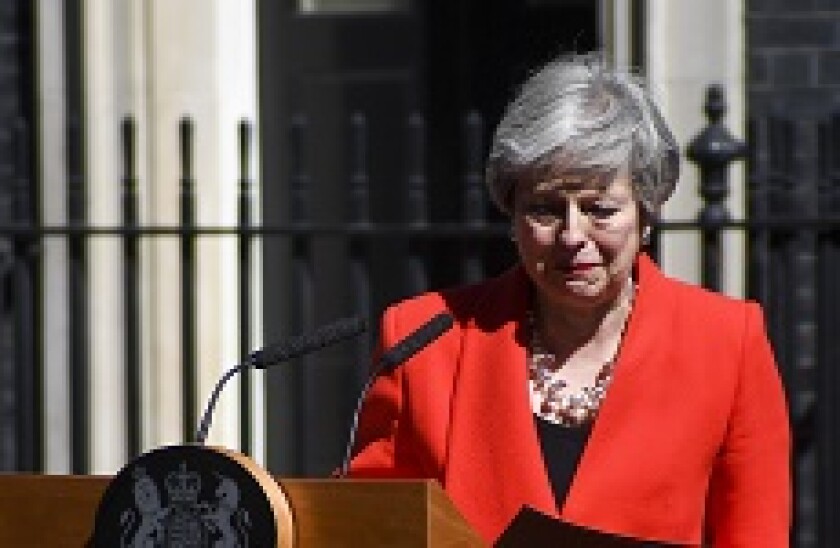Investors had largely been confident that the majority in the UK Parliament against a No Deal Brexit, and the economic hardship predicted to follow it, would continue to force the prime minister to seek an extension to the Brexit negotiating period from the European Union.
The EU has also shown that, despite the reluctance of French president Emmanuel Macron, it is not keen to force the UK from the EU without a deal.
However, there is a strong chance that the next prime minister will be an ideological hard Brexiteer. Conservative Party rules require that the top two candidates voted for by Conservative MPs are then put to the party membership, which makes the final choice. The grass roots of the Conservative Party is heavily in favour of Brexit.
That could mean the new prime minister does not ask the EU for an extension in October. The UK would then be set to leave the European Union without a deal by default on October 31.
There is little parliament can do to prevent that outcome, short of bringing down the government and forcing a general election. That would require Conservative MPs to vote against their new prime minister - something that seems particularly unlikely, since it could lead to a general election that could bring Labour’s Jeremy Corbyn to power.
Market reaction has been muted on Friday. But as the leadership contest begins to get under way and rhetoric towards the EU hardens, this is likely to change.
“Theresa May’s resignation came as no surprise, but the modest support sterling and UK rates have enjoyed since her announcement is somewhat remarkable,” said Tom Graf, head of macro strategy for EMEA at State Street Global Markets, in a note on Friday. “We suspect that support will prove temporary. Not only do proponents of a No Deal Brexit dominate the list of her likely successors, Parliament has almost no options at its disposal to check any future prime minister who wants to leave the European Union without a deal.”
There is no guarantee that the UK is heading for a No Deal Brexit. The new prime minister — possibly Boris Johnson, the former foreign secretary who is a favourite with party members —would have to push through such an outcome against the will of Parliament and probably the majority of the country.
Any economic troubles that followed would be seen partly as the fault of the prime minister who had triggered a hard Brexit. The chances are that this new Tory leader would not be prime minister for very long if this No Deal decision resulted in a severe downturn in the UK economy.
But the Damoclesian threat of this outcome continues to hover ominously over the UK and is keeping potential investment in the country at bay.
Investment outflows from the UK remain heightened, despite improving underlying economic fundamentals, according to research from Bank of America Merrill Lynch. Only Italy is more unpopular than the UK with European fund managers.
Among global fund managers surveyed by BAML, the UK is the least popular region in the world, with 28% underweight.
The bank said “sentiment has modestly improved" from 41% of managers being underweight the UK in March 2018, but "few investors own the region”.
The results of the survey were published on May 14, before the events that led to May’s announcement of her plans to resign today.
Should a hard Brexiteer win the Tory leadership, more investors could position themselves to go underweight the UK.
Investors and bankers who regularly speak to GlobalCapital cite the threat of a chaotic Brexit as the reason for this unpopularity.
As long as a No Deal exit remains a realistic possibility, Brexit will continue to hamper investment in the UK, and the capital-raising capabilities of its companies.
Investors are trying to make their Brexit displeasure heard by keeping their hands in their pockets.
Boris, we hope you’re listening.

